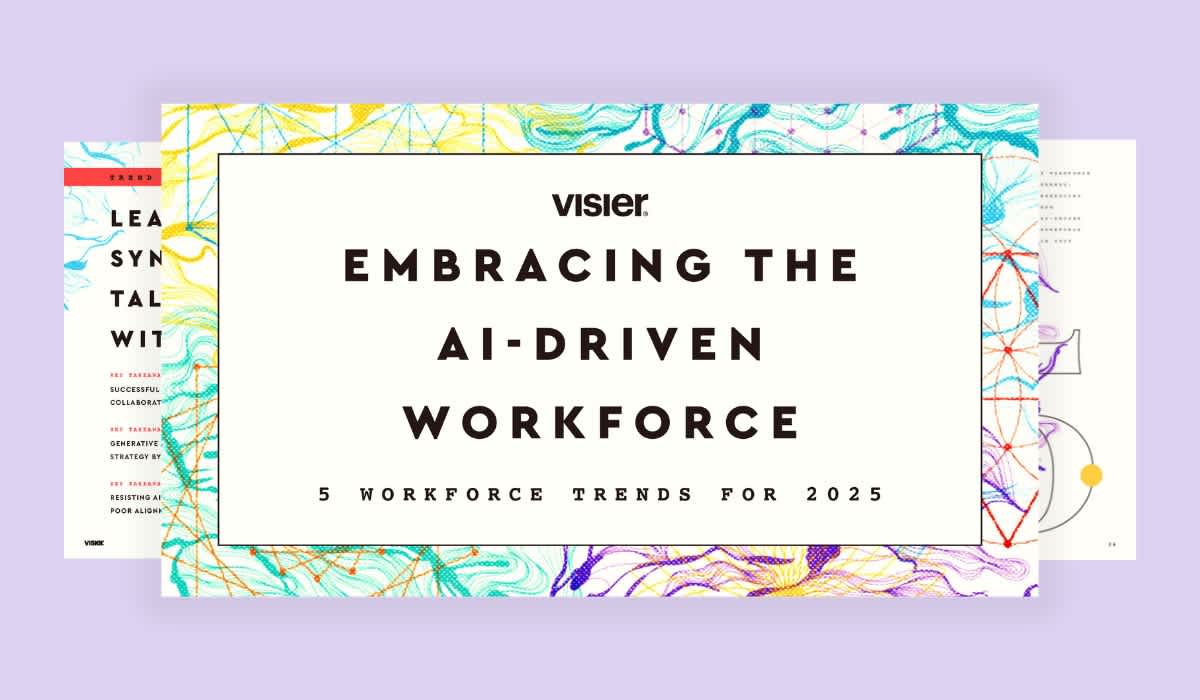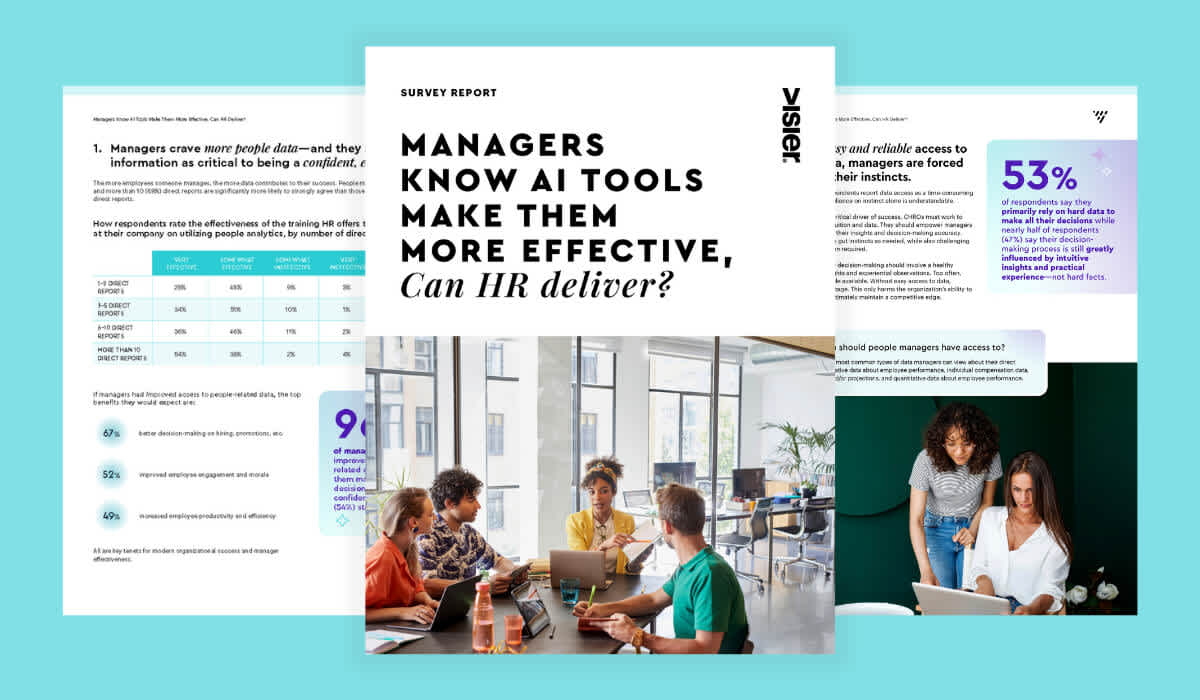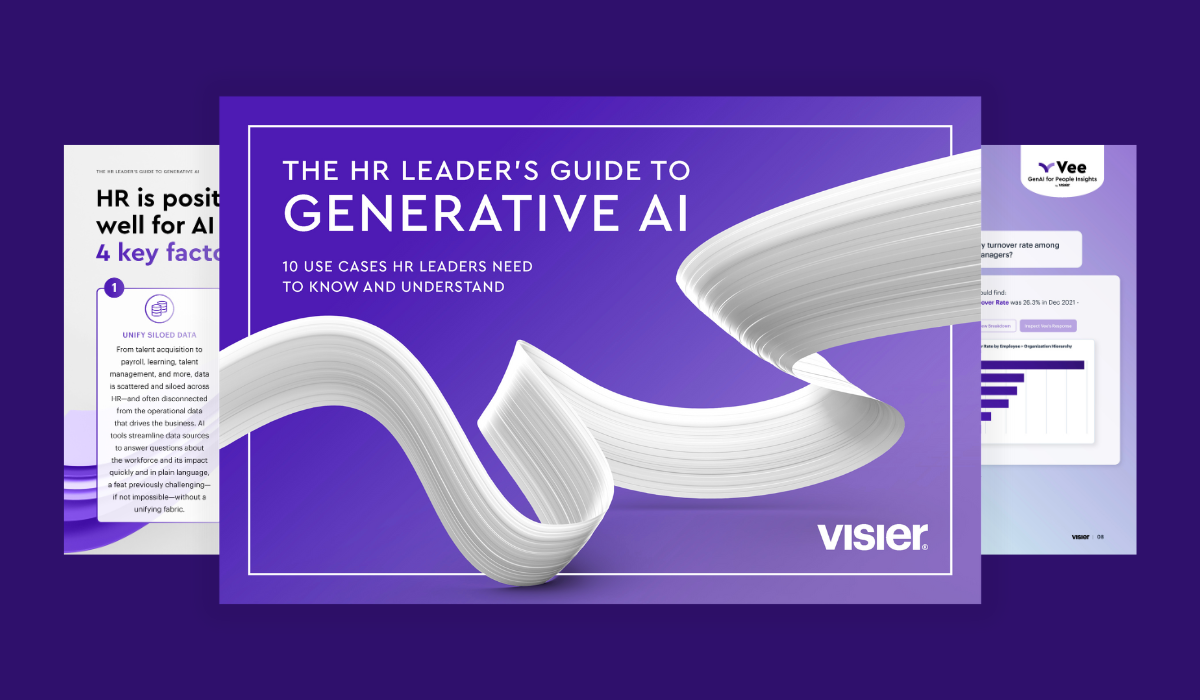New Research on AI's Impact on Jobs, Time Saved Has Employees Divided
Can generative AI help relieve burnout and free up time for skills development? New research reveals employees are divided over AI’s impact.
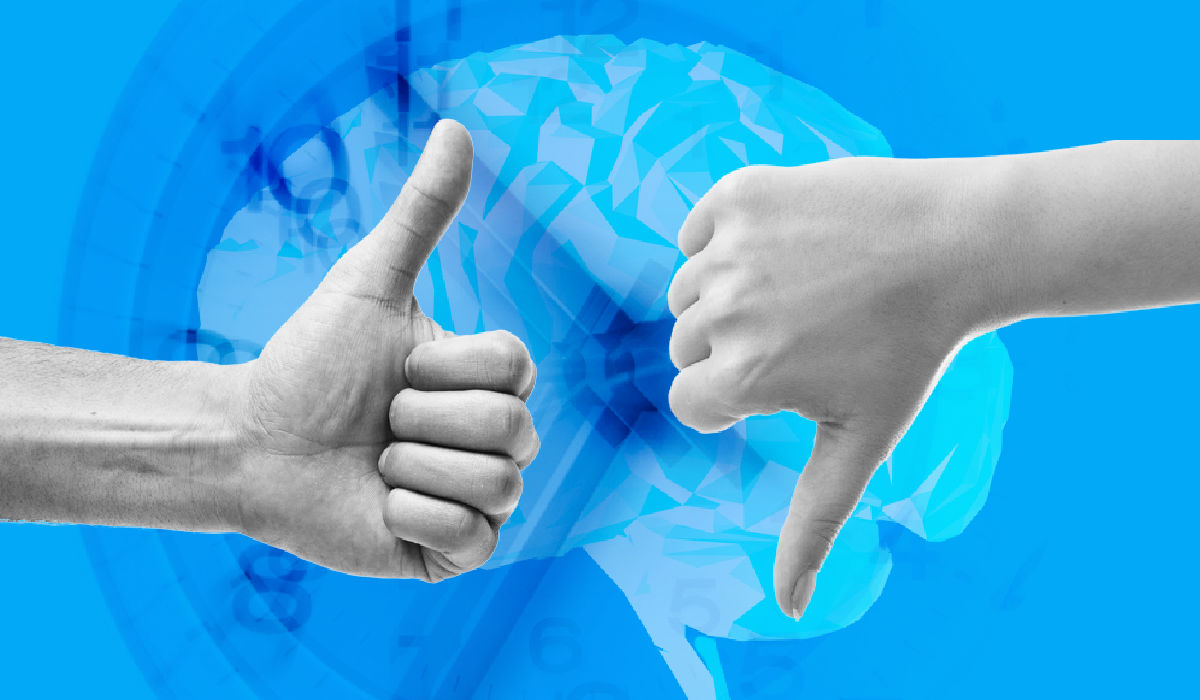
During the Great Resignation, millions of employees quit their jobs in search of better work-life balance. But two years later, burnout continues to rise—and many business and HR leaders are still wondering how to create a healthier and more sustainable work environment.
In light of these trends, the generative AI boom raises some interesting questions. Generative AI, an emerging technology that creates new content or automates tasks, has the potential to either enhance work-life balance by saving time or increase employee stress over concerns about potential job displacement.
Can generative AI solutions help workers regain their work-life balance and invest in their learning and development (L&D) and skills development? Or, is artificial intelligence contributing to employee stress and concerns?
As a leader in people analytics, Visier wanted to find out how employees actually feel about the use of AI tools in the workplace. In May 2023, we surveyed more than 1,000 employees based in the U.S. and Canada to better understand if—and how—employees are using AI at work, and whether it’s making a difference in burnout and work-life balance.
The survey revealed that while employees hold conflicting views about whether AI will alleviate burnout, most employees are using generative AI tools to some extent and reaping the benefits.
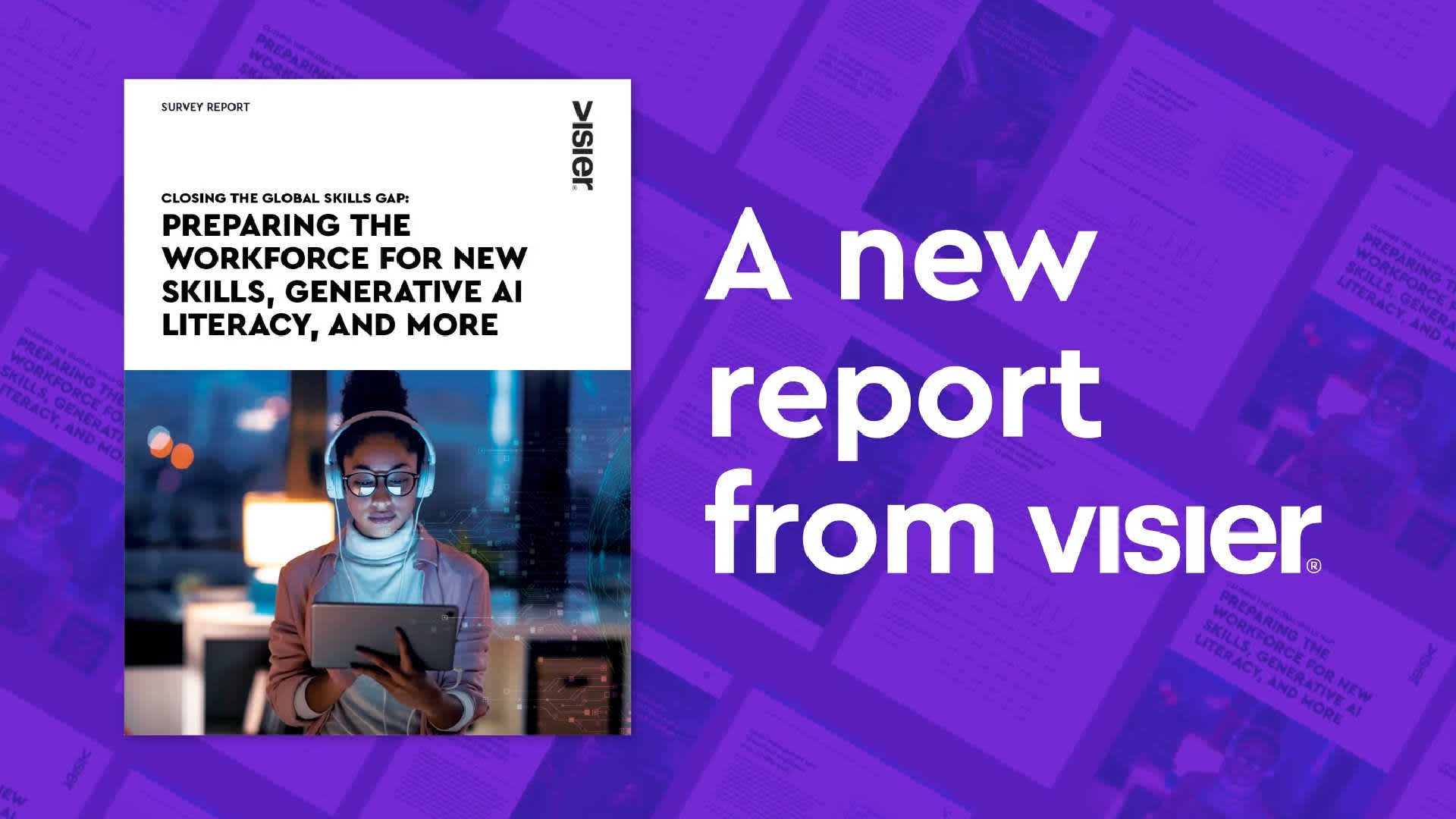
Employees are worried about the future of their skills
Skills development is critical to employees’ career growth and engagement in the workplace. In fact, almost all respondents (98%) say developing new skills in the workplace is important, and 88% agree that their ability to earn more is dependent on their skills growth and development. However, nearly half of employees (49%) say they’re disengaged at work because they’re not learning new skills.
Amid the recent generative AI boom, 61% of employees also expressed concern that the skills they currently have could be replaced by AI in the future.
But despite these concerns, there are some skills that employees believe AI can never replace: soft skills (58%), leadership skills (55%), and creative thinking skills (41%). Only 4% of employees say there are no particular skill sets that AI can't replace. In addition, most employees see working with AI as its own valued skill. More than three-quarters (76%) say it’s important to develop AI-related skills for their future career growth.
Skill sets respondents believe that AI cannot replace:
Soft skills: 58%
Leadership skills: 55%
Creative thinking skills: 41%
Technical skills: 34%
Emerging technology skills: 15%
Not sure: 6%
There are no particular skill sets that AI can't replace: 4%
Generative AI unlocks myriad benefits including time-saving opportunities
Many employees have already started using generative AI tools to some extent. A third of respondents report having spent a significant amount of time educating themselves about newly developed AI tools, and nearly a quarter (23%) say they have experimented with them in a personal or professional manner. Only 5% of employees say they have never heard of these tools.
Why are employees embracing AI? One reason is that employers are pushing it. Over three-quarters of respondents (77%) report that their employers are encouraging the use of AI in the workplace. Only 23% say their employer is not at all encouraging the use of AI in the workplace.
This encouragement is paying off with tangible time-saving benefits. Of respondents who have spent a significant amount of time or experimented with AI, 29% say generative AI tools save them 30 minutes to an hour in an average day, and 18% say the tools save them approximately three to four hours a day. Only 2% say generative AI tools don’t save them any time at all.
The amount of time employees think generative AI tools save them, daily:
Less than 30 minutes, please specify in minutes: NA*
30 minutes – 1 hour: 29%
1.1-2 hours: 23%
2.1-3 hours: 23%
3.1-4 hours: 18%
More than 4 hours, please specify: NA*
They save me time less often than daily: 2%
They don't save me any time at all: 2%
* not statistically significant due to low respondent count
Beyond time savings, AI introduces a range of benefits in the workplace. More than half (51%) of employees are excited about AI’s ability to automate routine, repetitive, or time-consuming tasks. Forty-nine percent of respondents are excited about increased efficiency and productivity in the workplace (49%), and 44% said the same about the ability to lessen workloads. Only 5% say they don’t think AI has any benefits.
AI benefits employees are excited about:
The ability to automate routine, repetitive, or time-consuming tasks: 51%
Increased efficiency and productivity in the workplace: 49%
The ability to lessen workloads: 44%
Improved accuracy and precision: 39%
The potential to unlock new insights and discoveries in various fields: 33%
I am not excited about any benefits: 9%
I don't think there are any benefits to AI: 5%
Employees also believe generative AI tools can create time for various other activities at work. Investing in L&D and skills development (56%), doing more high-value work (53%), and investing in their wellness (49%) top the list of activities employees would spend their time on if AI were able to reduce their workload.

Activities respondents would spend time on resulting from the use of AI:
Investing in learning and development (L&D) and skills development: 56%
Doing more high-value work: 53%
Investing in my wellness: 49%
Using my PTO more: 24%
Not sure: 5%
Nothing in particular: 4%
Employees are divided over whether AI will help or contribute to burnout
Employees acknowledge the time-saving benefits of generative AI, but are split on whether AI will hurt or help them with their jobs: 45% of employees believe that AI will lead to increased workloads and create further burnout, 38% say AI will lead to decreased workloads and prevent burnout, and 17% aren’t sure. Clearly, employees recognize that AI can enhance efficiency, meaning it could also create the potential for employers to pile more work onto employees’ plates.
Interestingly, leadership is more concerned that AI will negatively impact workloads, with 71% of C-suite executives and 53% of senior managers agreeing that AI will lead to increased workloads and create further burnout, compared to 33% of intermediate employees and 28% of entry-level employees.
While employees hold conflicting views about whether AI will alleviate burnout, they exhibit greater confidence in the positive impact AI will have on their work-life balance. Two-thirds of employees agree that using AI tools will improve their work-life balance. On the other hand, 12% disagree and 21% aren’t sure.
Despite divided opinions, generative AI tools are here to stay—which means employees need to prepare now. Ninety-one percent of respondents say there are things employees can do to prepare for the evolution of skills resulting from the increased use of AI-powered tools. Preparation includes pursuit of continuing education and training programs to stay current with industry trends (57%), building a strong network of professionals in the field to stay informed about changes and opportunities (51%), and seeking out mentorship or coaching from professionals experienced in using ChatGPT and other AI-powered tools (44%).
Ways respondents believe workers can prepare for the changes in professional skills that will result from the increased use of ChatGPT and other AI-powered tools:
Pursue continuing education and training programs to stay current with industry trends: 57%
Build a strong network of professionals in the field to stay informed about changes and opportunities: 51%
Seek out mentorship or coaching from professionals experienced in using ChatGPT and other AI-powered tools: 44%
Develop technical skills relevant to using ChatGPT and other AI-powered tools: 43%
Develop skills that cannot yet be replaced by AI and automation: 30%
Not sure: 6%
No particular way: 3%
But the responsibility shouldn’t solely rest on employees—65% of respondents say employers should be responsible for skills development to ensure their employees are either retrained or upskilled to grow with the company.
Employers who neglect skills development risk decreased employee engagement and a drop in retention in the long term. While continuing to encourage the use of AI is critical for organizations to keep pace with emerging technologies, business leaders must also reassure employees that AI is meant to serve as a helpful tool. Providing education, assuaging concerns, and highlighting the benefits of generative AI can motivate more employees to adopt the tool and reap the time-saving benefits for their organizations.
Employers: It’s time to encourage generative AI use and assuage employee concerns
Generative AI will continue to transform the workplace. And while our research shows that some respondents are already integrating AI into their workflows, many organizations are still unprepared for the changes brought by emerging AI tools. Generative AI has the power to increase productivity and introduce time-saving opportunities for organizations, but employers can’t take that result for granted. They need to continue encouraging generative AI and provide training so employees feel confident using the tools.
With nearly half of employees disengaged at work because they’re not learning new skills, now is the time to prioritize L&D. Rather than using the time generative AI can free up to give employees more work, encourage employees to use this time for skills development. Investing in skills growth can also address and assuage employees’ valid concerns about how these tools will affect their employment prospects and career trajectory. Together, these investments can boost employee engagement and productivity without sacrificing work-life balance—and ultimately protect against feelings of burnout.

